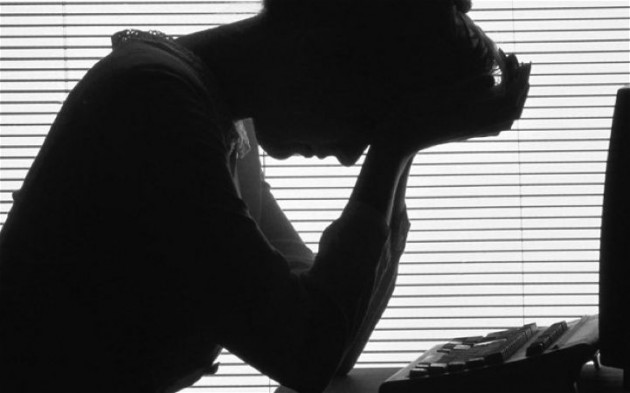
‘Suck it up’: Why one columnist wants us to hide our mental illness
Earlier this week, a CEO in the United States named Ben Congleton hit the headlines when he praised an employee for reminding him of the importance of caring for one’s mental health.
After Madalyn Parker circulated an email to her team which acknowledged her need to take a sick day in order to focus on her psychological wellbeing, Madalyn's employer told her that her candour did much to remove the stigma surrounding the issue.
Make no mistake; there’s a reason Madalyn's story struck a chord worldwide this week, and that’s because the vast majority of us either have first-hand experience of a mental health condition or know someone who suffers from one.
Like any physical ailment that prevents you from properly doing your job, anxiety and depression can render you incapable of functioning in the workplace.

So, when a Washington Times columnist suggested that Madalyn’s request to focus on her mental health was a classic example of ‘America’s wussification’, we are reminded that when it comes to removing the stigma, we are far from in the clear.
Commenting on the popularity of the story, Cheryl K. Chumley berated Madalyn’s decision, writing: “Taking a day off because you’re feeling depressed or anxious or otherwise unhappy and distressed is the stuff of Millennial Madness.”
“What a sad moment for America,” she continued in an article entitled Mental Health Sick Days a Sign of America’s Wussification.
“Just think back on the generation upon generation of hard workers who braved the likes of the Depression and meager work opportunities and conditions to take whatever jobs were offered – and then think of the plight of Parker, who’s feeling a little down in the dumps and needs a day or two to nap it off, or do some therapeutic ceramic-making," Cheryl smugly quipped.
“And, oddly enough, who has to share that very private personal health information with work colleagues – instead of, once again, keeping it private," she added.

And therein lies, perhaps, the biggest problem – Cheryl’s insistence that Madalyn should have just kept quiet.
Keeping schtum about a family member’s mental illness is something many of us know all too well.
Hiding our own until we buckle under the weight of it is something felt just as keenly by others.
And being forced to internalise the insensitive remarks made by women like Cheryl K Chumley are the very reasons Madalyn’s story is one we need to continue circulating.
“If you’re that down and need personal time to deal with your mental health, for goodness sake, just call in a sick day. No need to explain,” Cheryl argued.
Because God forbid, we’d seek strength in transparency, solace in the truth or solidarity in our colleagues, right Cheryl?
“All this open embrace of weakness is just making the American work force look bad,” she concluded.
Oh really? And is asthma a sign of weakness? What about diabetes? And where do we stand on epilepsy?
When you have the likes of Cheryl K Chumley sharing her thoughts on mental health sick days, you can be damn sure we need the likes of Madalyn Parker and Ben Congleton sharing theirs.









